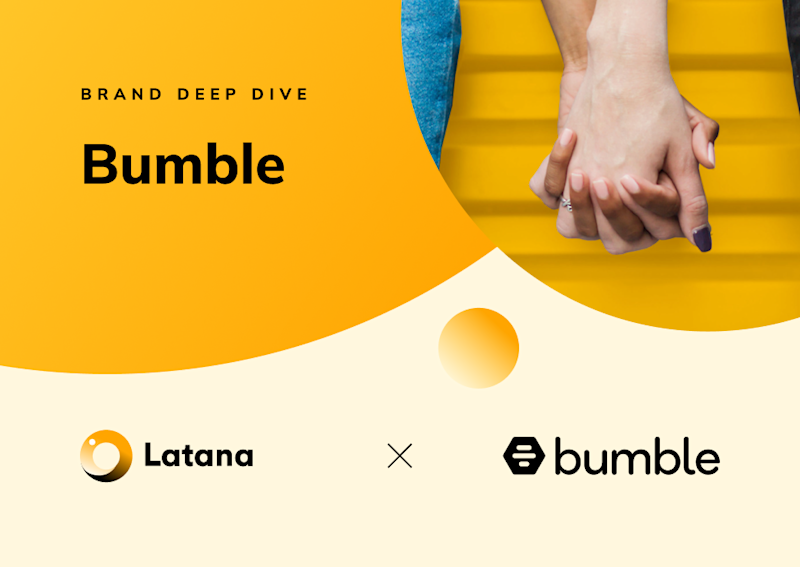Do you want more energy? Better sleep? Healthier digestion? Well, you’re not alone. But finding the right combination of vitamins and supplements can be a tall order — after all, there are so many options out there, how do you know which ones are right for you?
Well, that’s where a brand like Care/of comes in. Founded in 2016 by Craig Elbert and Akash Shah, Care/of is a D2C healthcare tech brand that sells personalized vitamins and supplements. Allowing consumers to choose from myriad health goals or categories, Care/of’s goal is to make it easier to be healthy. Promising honesty, transparency, and quality, Care/of is a research-backed brand that’s making waves in 2022.
So, what allowed this niche brand to find such success in just under six years? And what can other companies learn from Care/of’s brand strategy? Let’s dive right in.
Care/of’s Growth Story
Source: Care/of Website
According to the brand’s About Us page, Craig Elbert and Akash Shah founded Care/of in 2016 — quite possibly in Washington Square Park, NYC — but they aren’t 100% sure about the exact location.
With a degree from the Wharton School and having previously served as an executive at e-retailer Bonobos, CEO Elbert brought both know-how and hands-on experience to Care/of. In the words of Christine Lagorio-Chafkin, a senior writer for Inc., “Elbert was well-schooled in tech-startup best practices. Start lean, launch fast, iterate fast.” In short, he know what he was doing.
Before co-founding Care/of, Akash Shah shared with The Proof that he “co-founded Hometeam, a technology-enabled in-home senior care provider that has raised over $40 million.” Furthermore, in 2017, Shah was named one of Forbes’s 30 Under 30 and is one of the four founding members of AARP’s Innovator's Council. Most importantly for Care/of, Shah, who is able the brand’s Head of Product, is “passionate about impacting people’s health” and wants the brand to serve as “a trusted wellness advisor alongside them as they build their health routine.”
But before Care/of was formally launched, the duo faced an issue: as much as they wanted to test consumer reception of a minimum viable product, the health supplement industry made it nearly impossible to do so. To launch, Care/of would need “a squeaky-clean supply chain in place before opening up sales to customers”, as well as a “friendly brand” that managed to assuage some consumers’ worries.
So, Elbert and Shah took a novel approach. They launched a fake brand first. Yes, you read that right. To “learn more about how customers would react to the concept of the product”, the duo came up with a fake brand, called “Beets Vitamins” — with a mock logo and website created to mirror Care/of’s future look, they had their friends and family visit and interact with the website.
Source: Inc.
In their interview with Inc., Elbert shared that their “friends and family who tested Beets were aware they couldn't make purchases, but they took a health quiz on the site and interacted with a company page and ads on Facebook”, which allowed the Care/of “team to watch and learn from their behavior.” They found that consumers were happy to take time with the personalization quiz and were really digging into the articles and studies provided.
This all made sense to Elbert and Shah, and though their experiment only lasted a few months, they were able to gather incredibly useful data — which enabled Elbert to “put together $3 million in funding from New York venture capital fund Juxtapose.”
After adding two “vitamin supply chain insiders from New Chapter, a decades-old vitamin and supplement company” to their team, Care/of was ready to launch the real thing. While the brand struggled in the first few months due to high demand and operational difficulties, the company managed to find its feet and managed its own supply chains.
In 2017, Care/of boasted 70 full-time employees and had raised $15 million — and just a year later, was valued at $156 million after “securing investments from Goldman Sachs’ venture capital unit and several other investors.” 2019 saw the brand’s sales soar 200% year-over-year, which caught the eye of giant-of-the-industry, Bayer.
In 2020, the Germany-based pharmaceutical company acquired a 70% stake in Care/of, which increase the brand’s value to an impressive $225 million. In the trade-off, Bayer now has access to Care/of’s data from more than 5 million people who have taken its core quiz since 2016, which the brand will likely use to “inform its future product and marketing efforts.”
Care/of is perhaps best known for its “signature, science-backed quiz”, which “deduces uniquely curated regimens for its customers” with “questions pertaining to customer health concerns, diet preferences, lifestyle habits, and fitness goals and recommends products based on those needs.”
Source: Care/of Quiz
Elbert shared with CO— that “each product recommendation is based on peer-reviewed scientific research and clinical reports”, and then expanded, stating:
“The quality of our products is a huge priority for us and we take great care to ensure our line of vitamins and minerals is made from the best ingredients out there, sourcing from the places they grow best, so each nutrient is as effective, safe and bioavailable as it can be”.
In 2022, Care/of is on the up and up — leaning into its strong social media presence, research-backed product assortment, and seamless customer journey. Let’s take a look at some lessons other brands can learn from Care/of.
3 Lessons To Learn From Care/of
Source: Care/of Homepage
Care/of is perhaps best summed up by its “You do you” mission statement, which reads:
“Everyone has a different path to personal health, and we're here to help you find yours. We believe in the power of technology, science, and human empathy to make the journey simpler. Let us help take care of you.”
From this, it’s clear that Care/of knows its strengths, as well as what consumers want in the health supplement industry. Let’s discuss three lessons we can take away from Care/of’s journey.
1. Personalization Is Your Best Friend
We all know that personalization matters — but it can still be surprising just how much of a difference it can make for brands in 2022. Care/of has a deep understanding of the importance of personalization, which can be seen most clearly in its core quiz.
When trying to determine which vitamins and supplements to take, the average consumer conducting their own research will likely end up confused and overwhelmed. There are so many options out there — and they all claim to be the best, exactly what your body needs!
But how do you know who’s bending the truth and who’s being honest? And how could you possibly figure out which of hundreds of vitamins you need to take to best complement your diet, lifestyle, and health goals?
That’s where Care/of and its core quiz come in. Lasting about 5 minutes, the brand’s quiz gathers vital information about each consumer’s demographic information, health goals, vitamin history, diet, and more. And when the quiz is done, you “receive customized recommendations for vitamins and supplements that can solve the problems you’ve identified”.
But Care/of goes a step further and “explains the science behind their recommendations in expandable windows, and highlights the reason(s) you’d benefit from taking each vitamin or supplement.” From these recommendations, consumers can pick and choose what they’d like to take — thus, creating their own personalized vitamin bundle (which has their name on it and everything!)
The Takeaway: To make it in an industry like health supplements — where there’s so much potential but so little common knowledge — Care/of needed to make the process as simple and personalized as possible. Customers need to feel as though they’re getting the vitamins and supplements that are truly tailored to their needs to foster brand loyalty.
No matter what industry your brand exists in, it’s always a good idea to see how you can incorporate personalization into your customer journey. It helps form stronger emotional connections with consumers and enhances the brand experience — both of which will support customer retention going forward.
2. Acquire Data From Testing To Get Ahead
From the very beginning, Elbert and Shah recognized the importance of data and testing. Instead of launching Care/of straight away, the duo went to the trouble of creating and launching a fake brand in order to gather the data and insights they needed to ensure Care/of had its best chance of success.
From this data, the co-founders gathered valuable insights. First, they learned that consumers were happy to spend more time than expected on the brand’s core quiz thanks to its focus on personalization. Second, they discovered that consumers were very interested in reading about the vitamins and supplements available. They wanted to truly know more about what they might put into their bodies.
Source: Care/of Website
These two learnings, paired with the rest of the insights gleaned from the Beets launch, allowed Elbert and Shah to launch the real thing with far more confidence and foresight.
The Takeaway: Some people may have thought they were crazy for spending time and effort on launching a fake brand to gather insights. But Elbert and Shah understood the value of high-quality data — of knowing what it is your target audiences really want from you and what they best respond to.
While brands that already exist can’t take this exact approach (sorry, time travel is still widely regarded as impossible), they can lean into data acquisition and testing — all of which is supported by brand tracking software. With access to reliable, authentic consumer data, brands can better position themselves to provide their target audience with what they want.
3. (Consumer) Knowledge Is Power & Enhances Trust
From the above-mentioned trial run, Care/of’s founders learned that consumers want to be educated on the world of vitamins and supplements. And not just surface-level knowledge, they want to dig deep into the powders, capsules, and pills they may be putting into their bodies.
With this information at hand, Care/of has executed a robust content marketing strategy that places a strong emphasis on educational content. From a digital library filled with informational articles and detailed project research to hundreds of customer reviews to resources on the brand’s honesty and quality, Care/of has provided potential and current customers with a wealth of information.
Source: Care/of Website
And enhancing consumer knowledge does more than just draw people in — it also increases trust and loyalty. As pointed out in a recent Optimnk article:
“As a DTC brand, you can’t just expect consumers to trust you, you need to show them clearly why they should trust you. To do that, you need to highlight the experts behind your product, be transparent about your ingredients or processes, and never make claims that you can’t back up.”
The Takeaway: By providing consumers with a font of detailed knowledge, Care/of empowers them to take charge of their health and make informed decisions about the vitamins and supplements they add to their diets.
Therefore, brands that offer less well-known products or services should consider following in Care/of’s footsteps and providing their target audience with all the information they need to make informed decisions.
Final Thoughts
Care/of has claimed its place in the health supplements industry by leaning into personalization, prioritizing consumer education, and using in-depth user data to tailor its content, products, and brand messaging to consumers’ needs and expectations.
With its Instagram-worthy packaging, influencer-friendly branding, highly personalized marketing approach, and science-backed products, Care/of is sure to continue its domination of the vitamin and supplement industry in 2023 and beyond. And we’ll be keeping an eye on them, no doubt about it.
![Latana x Care/of [Cover Image]](http://images.ctfassets.net/7so8go2zrvbw/3HvA8kNQFAZnU0Gg6SKAk2/dfa6002871350b02a9e11a13543a1fbc/Blog_Cover_1288X400_-_2022-11-18T151146.442.png?w=1288&h=400&q=95&fm=png)




